With: Derek Freitas, Eco Ruralis Staff and WWOOF Romania Coordinator
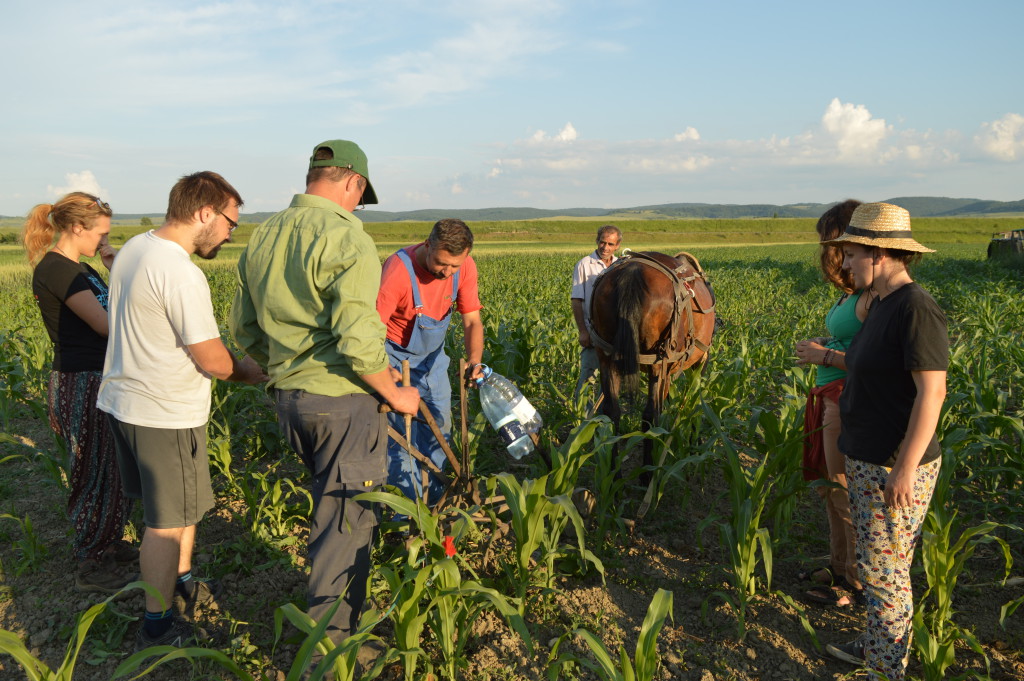
What are the most important current needs of young farmers in Europe? What are the existing exchange schemes for young people interested in farming, and how can these be improved?
On October 15-16, a “Knowledge for Young Farmers” event was held in Brussels by the European Commission. A study commissioned by the Directorate-General for Agriculture and Rural Development (DG AGRI) was presented which revealed the most important current needs of young farmers in Europe, an overview of existing exchange schemes and a guide to establish or improve those schemes.
The “Pilot Project: Exchange programmes for young farmers” study includes interviews with 2,205 young farmers (40 years old and under) from all 28 EU (EU-28) Member States. The preliminary results conclude that “land to buy or to rent is confirmed to be the most important need of the young farmers, most often due to legislative issues, institutional issues, issues related to inheritance and land prices.” Altogether about 60% of all respondents mentioned having difficulty to access land.
However, at the conference, land grabbing was not acknowledged by European Union officials as a cause – despite being directly related. Other top needs of young farmers include access to credit, subsidies and sourcing qualified labor. The most important knowledge needs of young farmers relate to “specific technological knowledge for the farm and developing a farm strategy. Furthermore, entrepreneurial skills (marketing, networking, communication and financial skills) and managerial skills.”
The study also identified and analyzed 185 young farmer exchange schemes from all EU-28 and 10 OECD countries. After completing interviews with exchange scheme managers, hosts and participants, 7 types of exchange schemes were described: Classic; Classic Organic; Leadership; Business; Web-Based; Group Exchange; EU Exchange. The Classic and Classic Organic schemes are the most popular which have thousands of participants per year whom travel to another country or another part of their own country for several weeks up to 12 months. Classic Organic only differs from Classic due to the focus on organic or ecological farming.
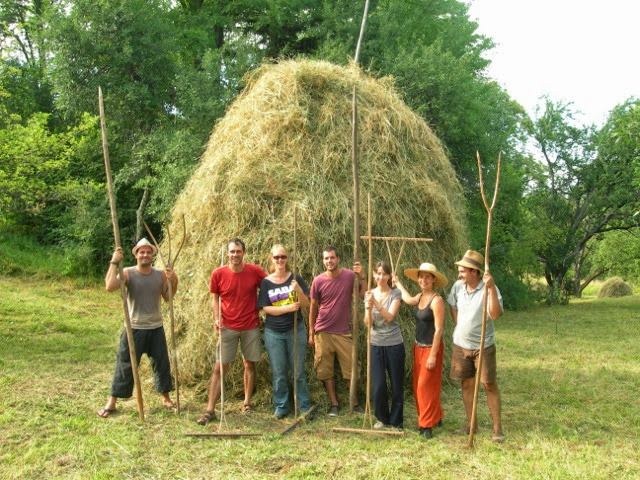
World Wide Opportunities on Organic Farms (WWOOF) is an example of a Classic Organic exchange scheme. It is the largest individual scheme program with over 7,000 participants (hosts and volunteers) from 30 national organizations reviewed for this study. During the conference, WWOOF Romania (a program of Eco Ruralis) gave a presentation about its scheme, raised issues about land grabbing and mentioned the new Access to Land civil society network in Europe. In addition, there is a new e-poll created by the Hands on the Land for Food Sovereignty alliance that the public can fill out which asks them about their views on Access to Land and EU land policies. General information was also provided during the presentation regarding the international program coordinated by the Federation of WWOOF Organizations (FoWO).
FoWO is open to becoming more involved in international networks which can expand and improve the global WWOOF program for its hosts and volunteers. One of its current projects is called “Living and Learning on Organic Farms (LLOOF)” which includes 10 national WWOOF organizations in Europe. The aim of the project is to develop and promote a Learning Guide as an online open educational resource for adult learners about organic food production, entrepreneurship, volunteering and cultural exchange on farm enterprises. The project includes meetings and events in order to gather organic farming information from many sources. One event where this occurred was the Central European Women Farmers Gathering 2015 set up by WWOOF Serbia (a program of AMA). Short videos are also being made which show specific organic farming methods and all of this information is being gathered on a new website. To View now, in 2016)
The DG AGRI study also conceived a guide for successful young farmer exchange schemes which focuses on tips for design and structure, objectives and effectiveness, management and efficiency as well as how to develop them to be sustainable and long lasting. A general recommendation is listed which pushes exchange schemes and public authorities to improve communication and publicity because these programs are unknown to many people.
Recommendations for governments include:
“Explore possibilities to connect the allocation of funds from rural development programmes with the (EU) exchange schemes such as Erasmus for Young Entrepreneurs, especially in countries with a low representation of (partner) organisations” and
“Strive to remove legal barriers, such as visa requirements and work permits, that inhibit the travel and permanence (for up to a year) of (graduated) agricultural students, trainees and young farmers.”
Recommendations for exchange schemes include:
“Organise your alumni and use their positive energy for recruiting new participants, bringing in additional sponsors and possibly taking up managerial tasks” and
“Improve health and liability insurance standards to prevent uncovered costs of participants (and hosts).”
The study and conference specifically regarding knowledge and needs of young farmers were the first of their kind at the EU level. Around 120 conference participants included young farmers, young farmer associations, exchange scheme managers, policy makers and representatives of EU institutions. According to the overview of the CAP Reform 2014-2020, only 14% of EU farmers are under 40 years old. So, events like this are vital for developing new networks and for advocating governmental changes that will benefit the current and next generation of young farmers in Europe. Hopefully, the recommendations will be accepted and implemented in the near future to keep this important work moving forward.
Eco Ruralis on WWOOF


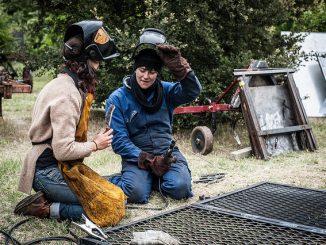
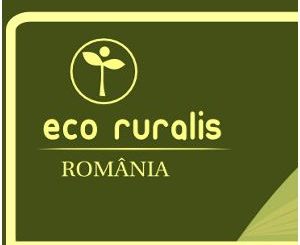
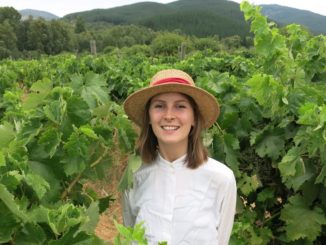
Hello,
Interesting article. I am also interested in WWOOFing as a way to provide organic farming knowledge, as I study the provision and transmission of farming knowledge through social interactions, collective work or peer-to-peer. If you are WWOOFer or host, please fill my survey (open until the 25th of July) https://glos.onlinesurveys.ac.uk/wwoofingknowledge
More info: http://www.ccri.ac.uk/wwoofing/
Thanks
Eloise
Countryside and Community Research Institute (CCRI) Gloucester, UK
A thourough insight into rustic organic life style ! Just started a wwoof meeting yesterday to discuss possible setbacks and the way forward for Cameroonian and african farmers in general. Once more , thanks.
Quite salient points which equally go true for african countries.
Lets together build on our efforts and make the world a better place for all citizens.
Wonderful job done.Its beneficial to us farmers of the world.
Thanks.
Good! Cngratulations